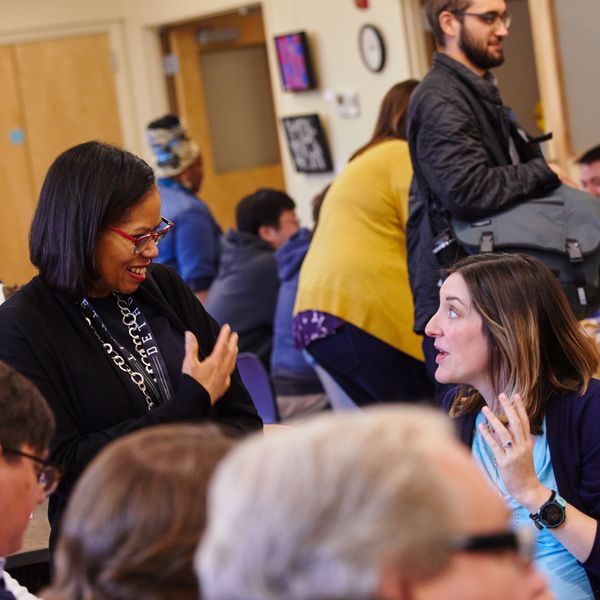MDiv Assessment Forms
Master of Divinity
Evaluation Guidelines
COMMITTEE MEMBER INSTRUCTIONS
MDIV MID-DEGREE ASSESSMENT CONVERSATION
Thank you for your participation in this important process! The purpose of the MDiv mid-degree assessment is to evaluate a student’s progress in achieving the learning outcomes stated for the degree program. More simply, this is a mid-way check-in to see how the student is doing and to talk about how their studies and experiences here are assisting them in meeting their vocational goals. We have designed the process in such a way as to involve those most invested in the student’s formation.
When a student invites you to participate in the mid-degree evaluation, you may ask:
Why you?
- The student has selected you because they identify you as an important person in their professional development. You may have served an important role in teaching, supervising, advising, or accompanying them.
What are we asking you to do?
- Review the written materials provided by the student and participate in a group conversation.
- Ask questions and invite the student to reflect on their experience of the MDiv program.
- Listen carefully to the student and evaluate where they are in their program and provide productive feedback about how they might continue to grow.
What is the process?
- This is a 45-60 minute conversation. It involves three people: the faculty advisor, the student, and an additional person (a professional mentor, contextual education supervisor, or other faculty person)
- If you work at the School of Theology, we require you to be present for the conversation. If you are an outside guest, you may either attend in person or remotely for the conversation.
- In preparation for this conversation, you must read the contents of the student’s portfolio. The student has been instructed to give you permission to view their portfolio. You can find it through the Digication Website. In the top left portion of the screen, you will find a link to e-Portfolio directory. Click. You can search “By Person” for the individual’s portfolio. You must read these in preparation for the conversation. The portfolio includes a) the personal statement from their Admissions application; b) a course paper, project, or presentation that is representative of their formation in the program. It could represent, for example, a shift in their thinking, a challenging idea that they worked through, the advancement of their scholarship. The genre is open. At the top of the document, the student has included a one-paragraph rationale for why they made the selection; c) Contextual Education Supervisor Statement.
- Students will also fill out a mid-degree assessment survey. This is the student’s self-evaluation of their progress in the program. This completed survey will be emailed to you prior to the meeting.
- The conversation will take place in the faculty advisor’s office unless the student has made other arrangements.
- Below you will find a suggested format for the discussion. The advisor will facilitate the conversation. Please feel free to compose one or two questions that you may have after reviewing the student’s materials.
- The discussion with the student will last approximately 45-50 minutes. The student will leave, and the remaining time (10-15 minutes) is set aside for a discussion between committee members. Together, you will fill out an evaluation form.
RECOMMENDED FORMAT FOR THE CONVERSATION
Welcome. Introduce yourself. Keep it brief.
Begin with questions from the committee members. Go around the room, each person asks a question.
- The student has already started the conversation with the paperwork they have uploaded.
- Based on your relationship with the student and your review of their e-portfolio, what would you like to know?
- Sample questions:
- Looking back at your admissions essay, has your sense of vocation changed? If so, in what way(s)?
- What have you discovered about yourself, as a future religious leader, that has surprised you?
- What research area or question has contributed the most to your understanding of ministry?
The faculty advisor will keep track of time. (45-50 minutes)
The student leaves the room, and the committee members will use the assessment form as the basis for evaluation. Although you may not have covered all of the areas in the discussion, you are basing your group evaluation on the written materials as well. Please highlight important aspects of the conversation in the “Comments” section of the form. The faculty advisor is responsible for filing the single report on behalf of the committee.
Faculty MDiv Mid-Degree Assessment Form



